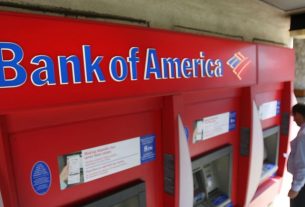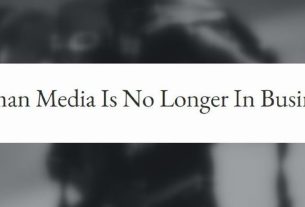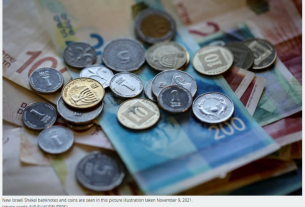NEW YORK (AP) — Shoeshines are losing some luster. Once a common practice, the tradition of getting a quick polish from a rag-toting shoeshiner has become more of a rarity, and many stands have disappeared across the country. The decline has been exacerbated by the pandemic, remote working, and the rise in popularity of more casual workwear. SC Johnson, which makes the biggest shoe polish brand, Kiwi, even said in January that it had stopped selling the brand in the U.K. due to softening demand (they still sell it in the U.S.). But there are still a few places left to get a good shine.
___
Close call, turbulent flight add to aviation safety concerns
WASHINGTON (AP) — Federal officials are investigating a string of close calls between planes, including one this week at Boston’s Logan Airport. The incidents are raising questions about whether air travel is getting less safe. The Federal Aviation Administration plans a safety summit this month, to look at whether some measures used to prevent accidents are less effective than they used to be. The number of close calls could end talk of easing experience requirements for newly hired pilots. President Joe Biden’s pick to run the FAA says he opposes easing the pilot-qualification standards.
___
Federal Reserve officials sound warnings about higher rates
WASHINGTON (AP) — A run of strong economic data and signs that inflation remains stubbornly high could lead the Federal Reserve to raise its benchmark rate higher in the coming months than it has previously forecast, several Fed officials say. Christopher Waller, a member of the Fed’s Board of Governors, said that if the economy continued to show strength and inflation remained elevated, the Fed would have to lift its key rate above 5.4%. That would be higher than Fed officials had signaled in December. His suggestion was in contrast to a speech he gave in January, titled “A Case for Cautious Optimism,” that captured a prevailing sentiment at the time that inflation had peaked and was steadily declining.
___
Stocks climb to send Wall Street to first gain in 3 days
NEW YORK (AP) — Stocks rose for the first time in three days, even as bond yields climb to tighten the squeeze on Wall Street. The S&P 500 gained 0.8% Thursday after erasing a morning loss. The Dow and the Nasdaq also rose. Stocks immediately flipped from losses to gains after a Federal Reserve official made comments that raised hopes the central bank may not ramp up its fight against inflation as aggressively as feared. That countered recent talk from other officials who raised worries about much bigger increases to interest rates after several reports on the economy came in hotter than expected.
___
Here’s why it’s so hard to buy vegetables in the UK
LONDON (AP) — British people have had to ration their salad staples like tomatoes and cucumbers for the past two weeks amid a shortage of fresh vegetables. Officials blame the problem on recent bad weather in Spain and North Africa and say the shortages could persist for up to a month. But many people are quick to point out that other European countries don’t seem to be suffering from the same shortages, leading some to question: Is this a consequence of Brexit? Experts say Britain’s exit from the European Union likely played a part. But they say a more complex set of factors including climate change, the U.K.’s overreliance on imports during the winter and soaring energy costs are more salient explanations.
___
Europe inflation eases slightly but consumer pain persists
FRANKFURT, Germany (AP) — Inflation has eased only slightly in the 20 countries that use the euro currency as the pain from higher costs for food and fuel persists. That’s giving the European Central Bank no reason to slow interest rate increases aimed at getting prices back under control. The European Union’s statistics agency Eurostat said Thursday that the consumer price index reached 8.5% in February compared with a year earlier, a drop from 8.6% in January. Prices for food, alcohol and tobacco rose higher than the month before, outpacing even energy costs amid Russia’s war in Ukraine. Energy prices grew from a year ago but were lower than their increase in January.
___
What is ESG investing and why do some hate it so much?
NEW YORK (AP) — After starting as a niche corner of the finance world, ESG investing has since exploded to become a major force on Wall Street — and the latest front in the nation’s cultural schism. To use an ESG approach is to consider a company’s performance on environmental and other measures, before deciding whether to invest in it. The industry says ESG helps make better decisions by highlighting companies that may be riskier than traditional investing guidelines alone would suggest. It could also help find better opportunities. To critics, it’s all just the latest example of the world trying to get woke.
___
GOP senators: Computer chip money underwriting ‘woke’ agenda
WASHINGTON (AP) — Republican senators says the Biden administration is taking $39 billion in federal money that’s meant to build computer chip factories and using it to further “woke” ideas such as requiring some recipients to offer child care and encouraging the use of union labor. The administration responds that those parts of guidelines announced this week will improve the likelihood of attracting companies to build semiconductor factories and people to work there. The administration sees the guidelines as a starting point for working with companies to ensure value for taxpayers. But Republican Sen. Mitt Romney says President Joe Biden is jamming in “woke and green agenda items” that’ll make it harder for him to pass future legislation.
___
The S&P 500 gained 29.96 points, or 0.8%, to 3,981.35. The Dow Jones Industrial Average rose 341.73 points, 1%, to 33,003.57. The Nasdaq composite advanced 83.50 points, or 0.7%, to 11,462.98. The Russell 2000 index of smaller companies added 4.23 points, or 0.2%, to 1,902.66.



